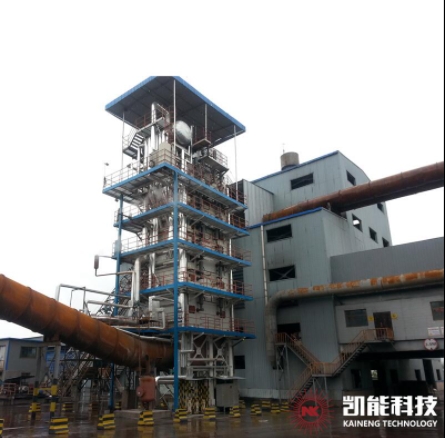What are the applications of waste heat boilers?
Introduction
Waste heat boilers are ingenious devices that harness the otherwise wasted heat energy generated by various industrial processes. By capturing and utilizing this heat, waste heat boilers offer a range of applications that contribute to energy efficiency, cost savings, and environmental sustainability. In this article, we will delve into the diverse applications of waste heat boilers and explore how they are making a significant impact in various industries.
Power Generation
One of the primary applications of waste heat boilers is in power generation. Many industries, such as chemical plants, refineries, and steel mills, produce a significant amount of high-temperature waste heat during their operations. Waste heat boilers can effectively recover this heat and convert it into useful energy, often in the form of steam or hot water. This energy can then be used to drive turbines or generate electricity, reducing the dependence on external power sources and improving overall energy efficiency.
Industrial Processes
Waste heat boilers find extensive use in a wide range of industrial processes. For example, in the cement industry, waste heat boilers recover heat from the exhaust gases of kilns, helping to preheat raw materials or generate steam for various purposes. Similarly, in the petrochemical industry, waste heat boilers capture the heat from flue gases or process streams, which can be used for heating, steam generation, or even as a heat source for other chemical reactions. These applications not only optimize energy utilization but also enhance process efficiency and reduce operating costs.
District Heating
District heating systems distribute heat energy from a central source to multiple buildings or residential areas. Waste heat boilers play a crucial role in such systems by capturing waste heat from industrial processes or power plants and channeling it into the district heating network. By utilizing this recovered heat, waste heat boilers contribute to the heating of homes, offices, and public spaces, eliminating the need for individual heating systems in each building. This results in significant energy savings, reduced carbon emissions, and improved heating efficiency on a larger scale.
Cogeneration
Cogeneration, also known as combined heat and power (CHP), is a highly efficient method of energy utilization that integrates the production of electricity and heat. Waste heat boilers play a vital role in cogeneration systems by capturing the waste heat generated during power generation and utilizing it for heating or other industrial processes. This simultaneous production of electricity and heat maximizes overall energy efficiency, reduces greenhouse gas emissions, and offers cost savings, making waste heat boilers an integral component of cogeneration plants.
Waste Incineration
Waste incineration is an important waste management process that converts municipal or industrial waste into energy. Waste heat boilers are essential in waste incineration facilities as they recover the heat from the flue gases produced during the combustion process. The captured heat can then be used to generate steam, which drives turbines to produce electricity or provides heat for other processes. By utilizing waste heat boilers in waste incineration plants, we can reduce the environmental impact of waste disposal while simultaneously producing valuable energy.
Steel and Metal Industry
The steel and metal industry is characterized by high-temperature processes that generate substantial amounts of waste heat. Waste heat boilers are widely employed in this industry to recover heat from furnaces, blast furnaces, or exhaust gases. The recovered heat can be utilized for various purposes, including preheating combustion air, generating steam for power generation, or supplying heat to other industrial processes. The integration of waste heat boilers in the steel and metal industry enhances energy efficiency, reduces fuel consumption, and lowers operating costs.
Conclusion
Waste heat boilers are versatile and valuable systems that unlock the potential of wasted heat energy in diverse industrial applications. From power generation to industrial processes, district heating, cogeneration, waste incineration, and the steel and metal industry, waste heat boilers play a pivotal role in improving energy efficiency, reducing costs, and promoting sustainability. By harnessing this previously wasted heat, we can pave the way for a more sustainable future, where energy utilization is optimized, and environmental impacts are minimized.


Comments